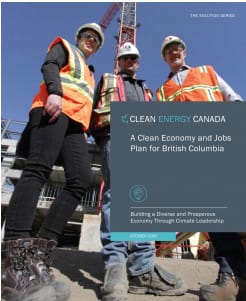Topics
The Northwest Power & Conservation Council reports: 'Northwest energy savings now second largest resource'
In 2014, Pacific Northwest utilities developed 262 average megawatts of new energy savings, enough to power 180,000 homes for a year, adding to the region’s impressive track record in achieving energy efficiency. Between 2010 through 2014, the cumulative savings of 1,500 average megawatts exceeded the target of 1,200 average megawatts set in the Council’s Sixth Power Plan.
Public Hearing 11/19 on Regional Power Plan
BOISE, Idaho – Should Idaho, Montana, Oregon and Washington build more power plants, or rely more on energy efficiency and renewables?
Issues like these will be addressed at a public hearing in Boise tomorrow night on the Northwest Power and Conservation Council’s 7th Regional Power Plan.
7th Plan hearing in Seattle
Thursday (Nov. 19) the Northwest Power and Conservation Council will hold a public hearing on the draft plan at the Hilton Airport Conference Center, 17620 International Blvd, 5-7 p.m., one…
Clean Energy Canada releases plan for British Columbia
Clean Energy Canada retained Navius Research to model the job and economic implications of meeting British Columbia’s 2020 and 2050 climate targets. This report aims to inform public discussion during the development of B.C.’s new Climate Action Plan 2.0.
Weigh in on the 7th Power Plan
The Northwest Power and Conservation Council, the region’s official power planning agency, has just released the draft of its seventh regional power plan. The public now has 60 days to provide written reactions and opportunities to attend and testify at public hearings in all four Northwest states.
Press Release: Draft power plan relies on energy efficiency
The new proposed power plan for Northwest states calls for meeting growing electric needs by using the power we have more efficiently and sees no immediate regional need for any new gas-fired plants. On Wednesday, the region’s official power planning agency, the Northwest Power and Conservation Council, approved the draft of its seventh regional plan.
Coalition study finds negligible cost for effective salmon recovery action
Nearly 35 years after the Northwest Power Act mandated equal treatment for fish and power generation in the Columbia-Snake system, 13 of the basin’s wild salmon and steelhead stocks are still listed under the Endangered Species Act. Recovery will require, among other measures, changes in hydropower system operations that will reduce electricity generation, such as dam removal or greatly increased spill over the dams. What would replacing the power cost Northwest energy consumers and how does it compare to escalating costs of maintaining aging power system infrastructure?
Testify on WA energy building codes on Oct. 16th in Olympia!
Washington state’s Building Code Council is considering a package of energy code improvements crucial to achieving the state goal of a 70% reduction in annual energy use by 2031. Despite their negligible costs and broad climate, comfort and energy-saving benefits, the proposals will likely draw opposition from some in the building industry and elsewhere. That’s why clean and affordable energy advocates must proclaim their support for these reasonable and cost-effective measures.
Coalition's comments voice strong support for 2015 Washington State Energy Code Proposals
The NW Energy Coalition expressed strong support for the 2015 Washington State Energy Code Proposals in the comments submitted to the Washington State Building Code Council. “Because increased energy efficiency…
Northwest Power and Conservation Council and other planners systematically underestimate efficiency savings from new products
Regional energy efficiency achievements have far exceeded power planners’ expectations for the past 15 years. Better-than-expected savings sound great for consumers and the environment … and they are. But underestimating future efficiency savings can lead to false conclusions about the need for new power plants, resulting in unnecessary expenses that raise consumers’ bills.










